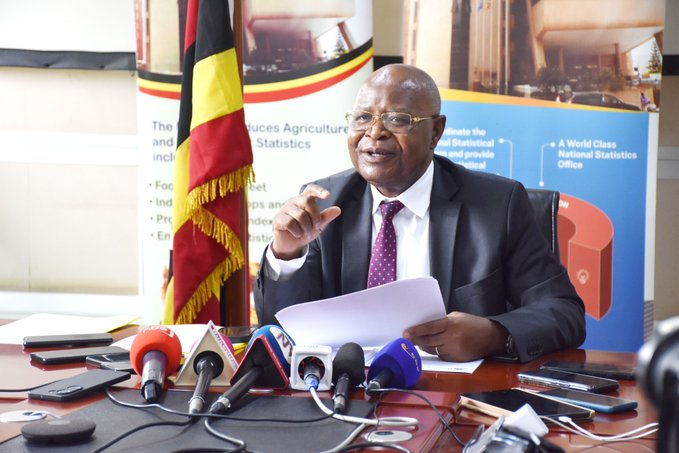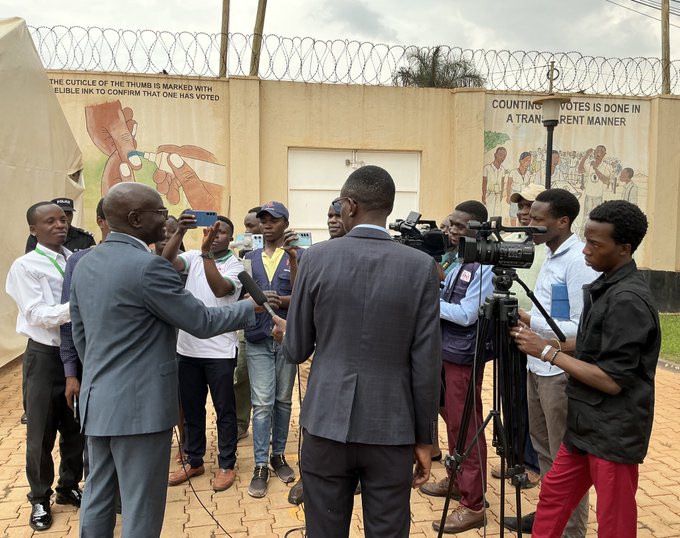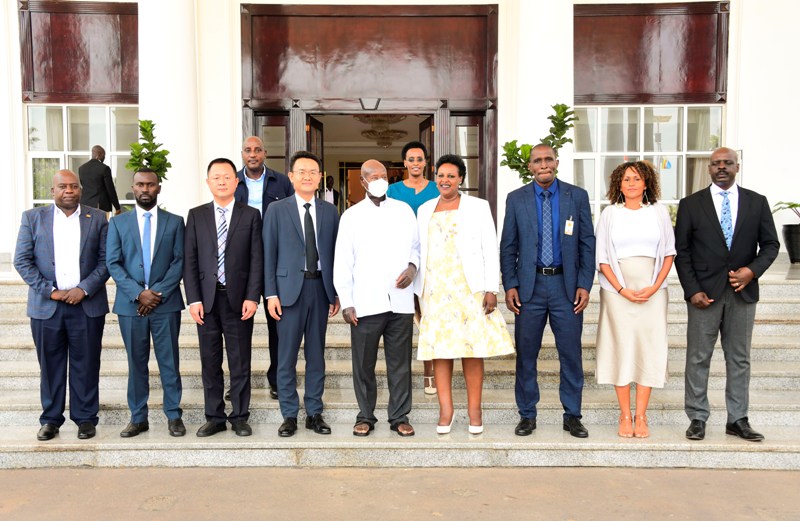CENSUS 2024: Ugandans react to UBOS’s pulling down of the census report
The controversy erupted after the original report presented conflicting population figures for certain tribes. Notably, it revealed a startling drop in the population of the Acholi from 2,131,443 to 1,941,913, while the Bagisu population was reported to have fallen from 2,390,975 to 2,096,149.

The bustling streets of Kampala are abuzz with chatter and speculation following the Uganda National Bureau of Statistics (UBOS)’s recent decision to remove the 2024 National Population and Housing Census report from its website.
This unprecedented move has left many Ugandans questioning the reliability of the statistics, with public sentiment reflecting a blend of frustration, concern, and skepticism.
The controversy erupted after the original report presented conflicting population figures for certain tribes. Notably, it revealed a startling drop in the population of the Acholi from 2,131,443 to 1,941,913, while the Bagisu population was reported to have fallen from 2,390,975 to 2,096,149.
These figures sparked heated debates across social media platforms, radio shows, and television channels, leading to widespread calls for clarification and accountability.
A Public Outcry
Kampala residents have been vocal about their thoughts on the censored report. Sarah Nakato, a 32-year-old teacher, expressed her disbelief: “How could the population of the Acholi and Bagisu drop when we all know that people are having more children? It makes no sense. This makes me question the entire census process.”
Nakato’s sentiments resonate with many, reflecting a growing concern about the accuracy of demographic data that affects resource allocation, policy-making, and regional development.
Similarly, John Mwine, a taxi driver in the city, weighed in on the debate. “If the figures are wrong, what does that mean for our representation? We need accurate data to make sure our voices are heard,” he said, emphasizing the impact such errors can have on political and social matters in Uganda.
UBOS Takes Responsibility
In light of the uproar, UBOS executive director Chris Mukiza responded publicly, acknowledging the mix-up as a “regrettable human error.” He later clarified on the Capital Gang radio talk show that the agency was committed to correcting the discrepancies and re-uploading a revised report.
“We understand the importance of accurate data for our people. We are working to ensure that such errors do not happen again,” Mukiza stated, assuring citizens that their concerns are being taken seriously.
Mr. Vincent Senono, the UBOS principal statistician and acting deputy executive director, also admitted the errors and confirmed that the original report would be taken down for necessary corrections. “The population for the Bakiga and the Langi was also incorrectly reported. We owe it to the people of Uganda to provide them with the most accurate data possible,” Senono explained.
Expert Insights
To gain further insight into the implications of this situation, we spoke with Dr. Grace Okello, a sociologist. “This incident highlights a significant issue with data integrity in our national institutions,” Dr. Okello noted. “Population data is vital for planning, resource distribution, and understanding demographic trends. Inaccuracies can lead to misguided policies that affect millions of lives.”
Dr. Okello added that the reported declines in the populations of specific tribes may provoke feelings of marginalization among communities. “When data shows a decrease in a community’s population, it raises questions about what may have happened—be it migration, economic factors, or even crises that haven’t been publicly addressed,” she cautioned.
A Call for Transparency
As UBOS prepares to release a revised version of the census report, the citizens of Kampala remain hopeful for transparency and accuracy. Didacus Okoth, the UBOS senior public relations officer, assured the Daily Monitor that the updated figures would be made available soon.
“We understand the frustration caused by these discrepancies. Our priority is to correct the information and maintain the trust of the Ugandan people,” Okoth stated.
While the immediate crisis over the census report may soon be resolved, the implications of the initial inaccuracies linger in the minds of Kampala’s residents. The need for reliable and trustworthy data is clear, and citizens are calling for stronger measures to ensure that the integrity of such important statistics is upheld in the future.
In a nation where demographic data plays a pivotal role in governance and resource allocation, the missteps of UBOS have ignited a conversation about accountability, transparency, and the importance of accurate statistics.
As Ugandans await the corrected figures, they are reminded of the vital role that accurate data plays in shaping the future of their communities and the country as a whole. The need for trust in public institutions has never been more apparent, and the residents of Kampala are keenly watching how UBOS responds to this moment of scrutiny







